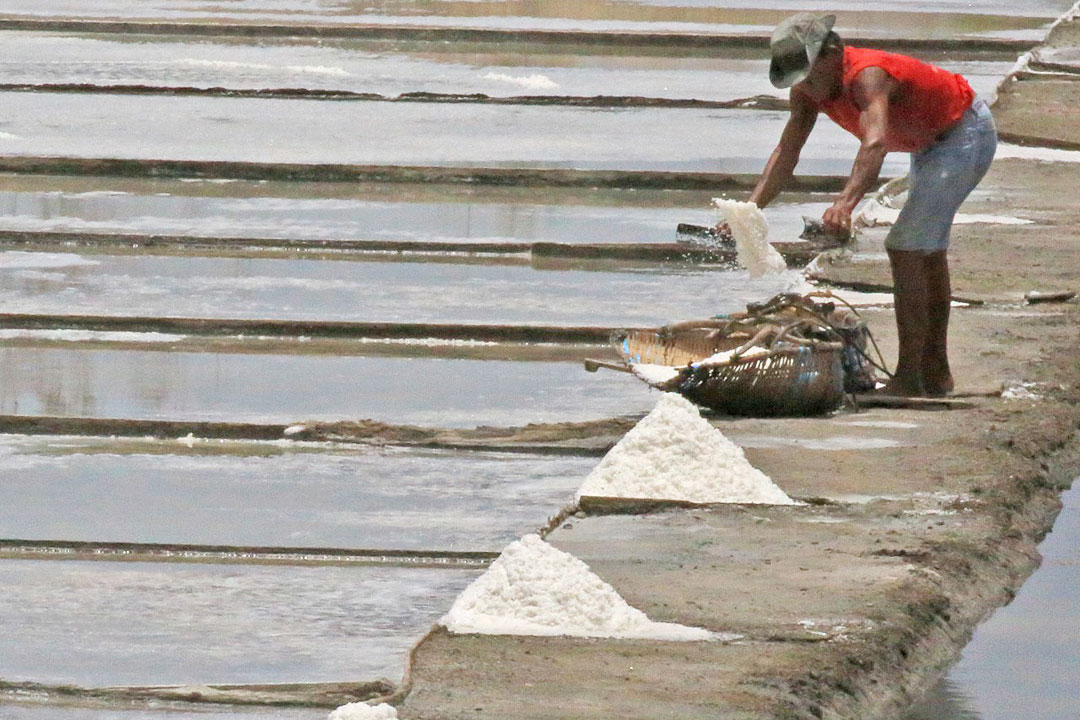Exporters betting on ‘robust’ overseas market for PHL salt

THE PHILIPPINE Exporters Confederation, Inc. (Philexport) said that it is hoping that the Philippine Salt Industry Development Act will unlock the overseas market potential of Philippine salt.
In a statement, Philexport President Sergio R. Ortiz-Luis, Jr. said Republic Act (RA) No. 11985 “will help the salt industry recover and encourage small-scale sea salt producers forced out of business to resume production.”
“It is also our hope that this law will make possible once again robust exports of salt from the Philippines,” Mr. Ortiz-Luis added.
The exporter organization said salt exports declined to $67,894 in 2020 from $190,029 in 2019.
“World export of salt in 2021 exceeded $2.59 billion, indicating vast potential for Philippine exports,” the group said.
The group added that the law lifts the requirement for all Philippine salt to be iodized, which was mandatory under the An Act for Salt Iodization Nationwide Law or the ASIN Law, which was designed to eliminate iodine deficiency disorder.
“But while with good intentions, the ASIN Law seriously affected sea salt production and exports and made the Philippines dependent on imports, with the country bringing in about 550,000 metric tons of salt every year or 93% of its salt requirements,” Philexport said. “This is despite the country’s 36,000 kilometers of shoreline, the fifth longest shoreline in the world,” it added.
It said that Philexport, together with other business groups, had been asking for natural sea salt to be exempt from the mandatory salt iodization under the ASIN Law.
Under RA 11985, a salt industry development roadmap will be drafted to ensure the revitalization of the salt industry. “(These) are aligned with the objectives and continued implementation of the ASIN Law,” the Philexport said.
Aside from the roadmap, the law will also create a Salt Council which will ensure the implementation of the road map and accelerate the modernization and industrialization of the salt industry. — Justine Irish D. Tabile



